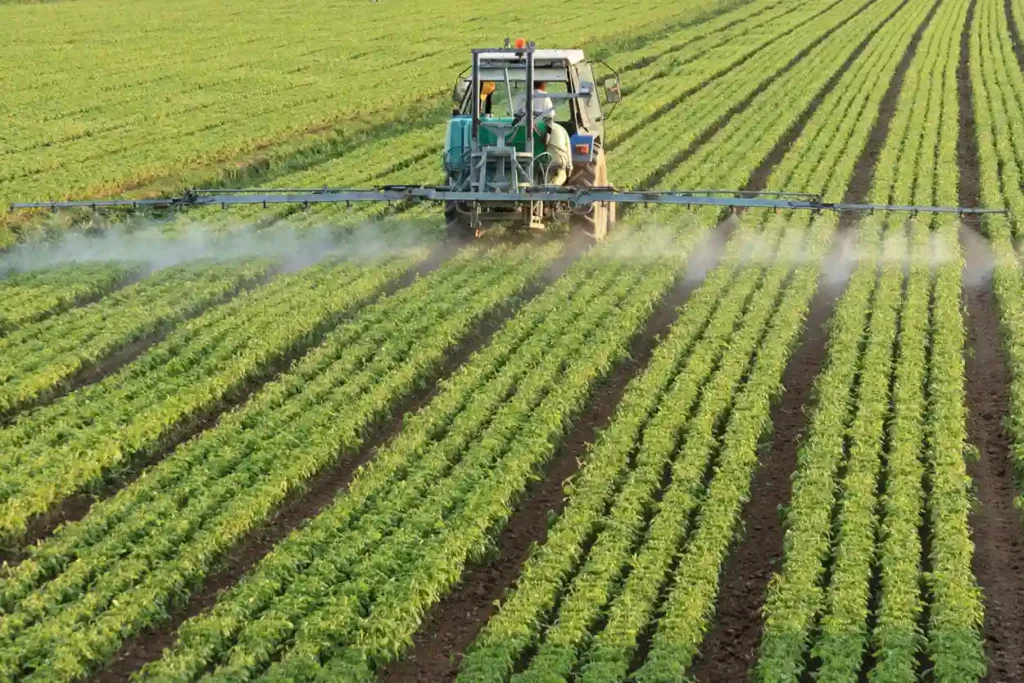Rashtriya Chemicals and Fertilizers Limited (RCF) is one of India’s leading public sector undertakings in the field of fertilizers and industrial chemicals. The company plays a significant role in providing essential fertilizers to the Indian agricultural sector, making it an essential player in the nation’s economic fabric. Investors looking at the RCF share price often consider various factors such as the company’s financial performance, government policies, and the overall state of the market. This article offers an in-depth analysis of RCF’s stock price trends, the factors influencing it, and the outlook for potential investors.
Overview of RCF’s Business Operations
RCF is a government-owned entity in India that operates primarily in the manufacturing and marketing of fertilizers and industrial chemicals. With its operations spanning multiple production plants across India, RCF is a significant contributor to the nation’s agricultural growth. The company’s portfolio includes urea, NPK complexes, and a wide range of chemicals that serve both the agricultural and industrial sectors. The demand for RCF’s products is driven by government subsidies, agricultural trends, and industrial growth.
RCF’s strong market presence is also backed by its commitment to sustainable farming practices and the development of eco-friendly fertilizers. The company’s government affiliation ensures a degree of financial stability, making it an attractive investment for many, particularly those seeking to invest in a long-standing public sector entity.
Understanding the Factors Influencing the RCF Share Price
The RCF share price does not move in isolation. It is influenced by a variety of factors that range from the company’s internal financial performance to external economic conditions. Investors looking at RCF shares must consider these factors to understand the potential for stock movement and investment opportunities.
Government Policies and Subsidies
As a government-backed company, RCF’s pricing and profitability are often tied to government policies. Fertilizer subsidies are a critical aspect of this, as the government supports the pricing of fertilizers to make them affordable for farmers. Changes in government policies, especially with regard to fertilizer subsidies, can have a direct impact on RCF’s financial performance. A reduction in subsidies or changes to pricing policies could potentially affect the company’s revenues, thereby impacting the RCF share price.
The government’s overall support for the agricultural sector also plays a crucial role. If the government increases its budget for agricultural subsidies or promotes initiatives that boost farming, the demand for fertilizers may rise, positively influencing RCF’s performance.
International Commodity Prices
RCF, like other fertilizer manufacturers, is affected by fluctuations in international commodity prices. Fertilizer production is heavily reliant on raw materials such as natural gas, which is used in the production of ammonia, a key ingredient in fertilizers. A rise in global commodity prices, such as natural gas, can lead to higher production costs for RCF, which in turn may reduce profit margins and potentially drive down the RCF share price.
Moreover, international supply chain disruptions or fluctuations in the prices of other raw materials used in fertilizer production can further impact the cost structure of RCF. This, in turn, can influence investor sentiment and affect the stock price.
Demand for Fertilizers and Agricultural Growth
The RCF share price is highly correlated with the performance of the agricultural sector. A strong agricultural output, particularly during favorable monsoon seasons, often leads to an increased demand for fertilizers. The better the agricultural performance, the higher the need for fertilizers, benefiting RCF’s sales and overall performance.

RCF’s stock price tends to perform well when agricultural growth is high and when government agricultural policies favor the use of fertilizers. Conversely, poor agricultural output, such as during droughts or crop failures, may reduce the demand for fertilizers, negatively impacting the company’s revenues and, by extension, its stock price.
Financial Performance of RCF
The RCF share price is also influenced by the company’s own financial performance. Investors typically track quarterly earnings, revenue growth, profit margins, and the company’s overall debt levels. A positive financial report, showcasing increased profits and reduced debt, often boosts investor confidence and can result in a higher stock price.
RCF’s profitability is crucial not only for its own growth but also for its stock performance. A consistent track record of profitability can help sustain the RCF share price at favorable levels, especially when market conditions are uncertain.
Competitive Market Dynamics
The fertilizer industry is highly competitive, and RCF faces competition from both domestic and international players. The company’s ability to maintain market share, innovate, and manage production costs efficiently plays a significant role in determining the RCF share price. A rise in competition, whether from new entrants or established firms offering more cost-effective products, can pressure RCF’s profitability and, consequently, its stock value.
Furthermore, any shifts in consumer preferences or significant changes in the demand for specific types of fertilizers could also affect RCF’s standing in the market. If RCF is unable to adapt to new market conditions, it could face stagnation in growth, which could negatively impact its stock price.
Historical Trends in the RCF Share Price
To understand the future trajectory of the RCF share price, it is essential to analyze the stock’s past performance. Historically, RCF has shown resilience, maintaining steady growth over the years, primarily due to its strong government backing and steady demand for fertilizers. However, like most stocks, it has also faced periods of volatility, especially in times of economic uncertainty or when there have been major policy changes affecting the fertilizer sector.
Over the years, the RCF share price has witnessed periods of both growth and stagnation. The stock has shown relatively stable performance in the long term, with occasional fluctuations due to factors like global commodity price changes, government interventions, and seasonal agricultural performance.
Recent Performance of RCF Shares
In recent years, the RCF share price has seen a steady recovery, particularly following the COVID-19 pandemic and the subsequent revival of economic activity. The government’s continued emphasis on supporting the agricultural sector and the rise in fertilizer demand due to industrial growth have contributed to RCF’s stable performance.
While RCF’s share price has not seen explosive growth, its stable performance, backed by consistent government support, has made it a preferred choice for investors seeking long-term stability.
Financial Metrics to Watch for RCF Stock
Investors assessing the RCF share price must keep an eye on several financial metrics that can offer valuable insights into the company’s overall health and growth potential. These metrics help evaluate whether the stock is priced attractively based on the company’s financial performance.
Earnings and Profitability
One of the most important metrics to watch is the company’s earnings. Earnings per share (EPS) is a key indicator of profitability. Investors often look at a company’s ability to grow its earnings consistently over time. For RCF, a stable and growing EPS signals strong operational efficiency, which can positively influence its stock price.
Debt Levels
RCF is a public sector undertaking with relatively low debt levels compared to private companies. Investors typically view a low debt-to-equity ratio as a positive indicator, as it suggests the company is not overly reliant on borrowing to fund its operations. High debt levels can increase financial risk and affect the RCF share price negatively.
Return on Equity (ROE)
Return on equity (ROE) is another critical metric that provides insights into how effectively the company is utilizing its equity to generate profits. A higher ROE is generally seen as a sign of good financial health, indicating that the company is efficiently converting shareholder equity into profit. A strong ROE can positively impact the RCF share price by boosting investor confidence.
Future Outlook for RCF Share Price
Looking ahead, the future of RCF share price is largely tied to several macroeconomic and industry-specific factors. The fertilizer sector in India is expected to continue growing due to rising agricultural demand, population growth, and increased government focus on sustainable farming. RCF, with its strong market presence, is well-positioned to benefit from these trends.
Additionally, the company’s shift towards greener and more sustainable fertilizer options may help it gain a competitive edge in the long term. Innovations in fertilizer technology, coupled with the government’s push for eco-friendly practices, could improve RCF’s profitability and, by extension, its stock price.
RCF’s financial health, ability to manage costs, and government policies will continue to be critical factors in determining its future performance. Investors must stay informed about these aspects to make educated decisions regarding their investment in RCF shares.
The RCF share price offers a mix of stability and growth potential for investors. As a government-backed company in the fertilizer and chemical sector, RCF stands to benefit from India’s growing agricultural demand and ongoing government support. However, the stock is subject to fluctuations based on external factors such as commodity prices, government policy changes, and agricultural performance.





